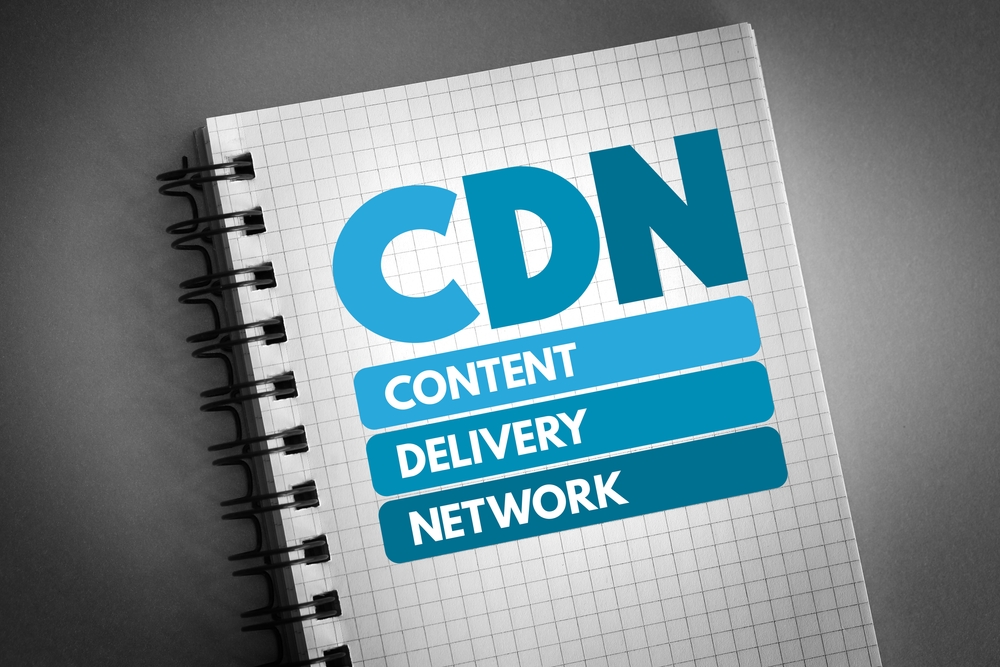A CDN is a network of servers that work together to deliver content to users based on their location. The purpose of a CDN is to improve the speed and reliability of a website by reducing the distance between the server and the user. When a user requests content from a website, the CDN routes the request to the nearest server, which then retrieves the content from the origin server and delivers it to the user. This process helps to reduce the load on the origin server and can significantly improve the speed at which content is delivered to the user. CDNs are particularly useful for websites with high traffic, as they can distribute the load across multiple servers rather than relying on a single server to handle all of the traffic. This can help to prevent website crashes due to high server load and improve the overall performance of the website.
When a user requests content from a website, the request is routed to the nearest CDN server, which then retrieves the content from the origin server and delivers it to the user. This process helps to reduce the load on the origin server and can significantly improve the speed at which content is delivered to the user.
CDNs are particularly useful for websites with high levels of traffic, as they can distribute the load across multiple servers rather than relying on a single server to handle all of the traffic. This can help to prevent website crashes due to high server load and improve the overall performance of the website.
In addition to improving website speed and reliability, CDNs can also improve security. Many CDNs offer additional security features such as protection against DDoS attacks and the ability to block malicious traffic. This is especially important for websites that handle sensitive information like online stores that accept credit card payments.
CDNs can also improve the scalability of a website by allowing it to handle large spikes in traffic without experiencing any performance issues. This is because the CDN distributes the load across multiple servers, which can help to prevent the website from becoming overwhelmed.
Another benefit of CDNs is that they can improve the availability of a website. If one of the servers in the CDN network goes down, the content can still be delivered to users from other servers in the network. This can help to ensure that a website remains available to users even if one of the servers experiences an outage.
15 Benefits from using a CDN
- CDNs can improve website speed by routing requests to the nearest server.
- CDNs distribute traffic across multiple servers, reducing the load on any one server and preventing website crashes due to high traffic.
- CDNs often offer security features such as DDoS protection and malicious traffic blocking.
- Faster website loading speeds enhance the user experience and increase the likelihood that users will stay on the site and interact with it.
- A faster website may rank higher in search results, resulting in increased traffic.
- Improved user experience and increased traffic can lead to increased revenue for a website.
- Search engines, such as Google, consider loading speed as a factor in ranking websites, so a faster website may receive a higher ranking in search results.
- Slow loading times may cause users to leave before the page finishes loading, leading to high bounce rates that can harm traffic and revenue for a website.
- Global reach: A CDN can help to deliver content to users all over the world, which can be particularly beneficial for websites that receive a large amount of international traffic.
- Improved scalability: A CDN can help websites handle large spikes in traffic without experiencing any performance issues.
- Enhanced reliability: A CDN can help to ensure that a website remains available even if one of the servers in the network goes down.
- Improved performance for mobile users: A CDN can better the speed and performance of a website for mobile users, who may be accessing the site from a slower connection.
- Enhanced privacy: Some CDN providers offer additional privacy features, such as the ability to mask the original IP address of a website.
- Integration with other tools: Typically, CDN providers offer integration with other tools and platforms, such as WordPress or Cloudflare.
- Cost-effective: CDN services can be more cost-effective than upgrading or maintaining your own server infrastructure.
Top 5 content delivery networks include:
- Akamai: A key CDN provider with a widespread network of servers that deliver content to users around the globe.
- Cloudflare: A well-known CDN service that offers security and performance features and is compatible with various platforms and tools.
- Amazon CloudFront: Amazon’s CDN service that provides fast content delivery.
- Fastly: A CDN service that delivers customizable content delivery and includes performance and security features.
- StackPath: A CDN service that provides DDoS protection and the ability to deliver content from multiple locations.
Ultimately, the best CDN provider for your website will depend on your specific needs and requirements. It is useful to research and compare different providers to find the one that is the best fit for your business.



